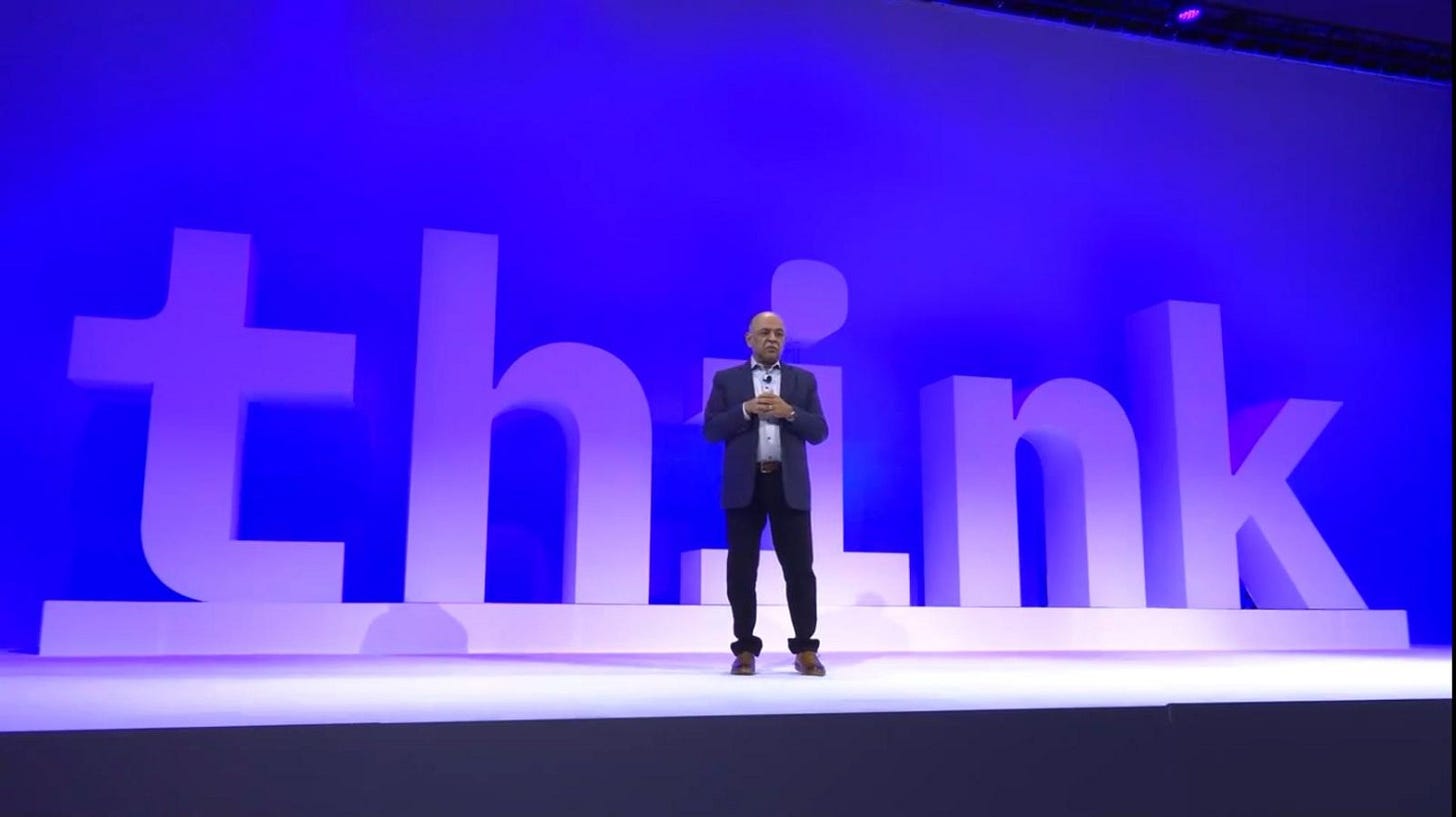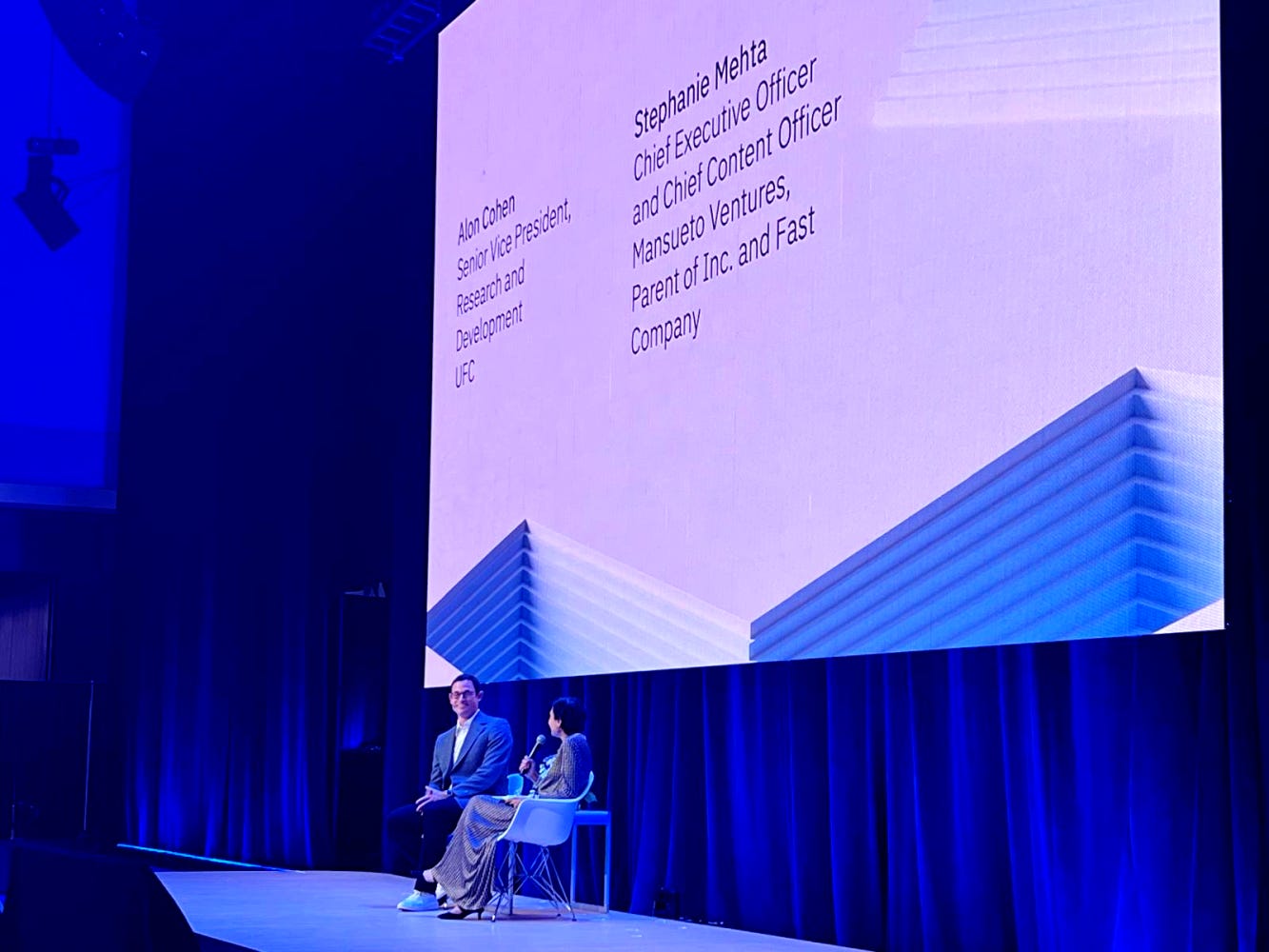My honest take on IBM AI Agents
IBM hired me to attend Think2025 and learn about their AI agent platform. Here's my take.
Let's talk about AI agents.
I'm the author of Autonomous Transformation, a book about the next era beyond digital transformation that was named one of Thinkers50’s Top 10 Best New Management Books for 2024. Since it was published, over $20B of investment has been architected on the ideas and frameworks in the book, and last year I launched a LinkedIn Learning Course on Autonomous Transformation, AI Agents, and a new way of leading built-for-purpose in the era of AI.
Agents are a core concept in Autonomous Transformation, and I’ve written about them on my Substack (here and here), in VentureBeat (here and here), in Fast Company (here), and I recently teamed up with Cassie Kozyrkov and Pascal BORNET to create a course dedicated to the topic: Agentic AI for Leaders.
So let's talk about IBM watsonx Orchestrate and AI agents.
Now that I’ve established who I am and where I’m coming from when it comes to conversations about AI agents, here’s how I got involved with IBM:
IBM reached out to me a couple of months ago asking if I would be interested in partnering with them at their Think2025 conference to learn more about watsonx Orchestrate and its recent developments, then writing my take on it. My neutrality and credibility with all of you is important to me, so we agreed that my point of view would be 100% my point of view.
Here’s what we did:
I flew to Boston to attend Think2025, where I met with multiple senior IBM execs and attended keynotes and panels (starting with the opening keynote featuring IBM CEO Arvind Krishna), and the below session with Alon Cohen (SVP, R&D at UFC) and Stephanie Mehta (CEO & Chief Content Officer, Mansueto Ventures, Partner of Inc. and Fast Company)
I met with industry analysts and AI experts to trade notes on what we were hearing and seeing, such as Pascal BORNET, Brij kishore Pandey, Kristen Kehrer, Ravit Jain, and Helen Yu
I learned about brands who are already using IBM watsonx Agents like L'Oreal, Heineken, PepsiCo, and UFC
I interviewed Bruno Aziza (IBM's Global Vice President of Data, BI & AI). You can watch the full interview below:
Here's my point of view:
1. IBM watsonx Orchestrate fills a much-needed gap in the Agentic AI ecosystem: Mission Control
True to their history in creating the computing technology that powered NASA's Mission Control during the Apollo missions, IBM has focused their investments on creating Mission Control for AI Agents, our next moonshot as we move into the era of Autonomous Transformation.
In 2025, enterprises are multi-cloud and hybrid, and IBM has created a pane of glass for building, managing, and running agents anywhere. This vision is an elegant example of systemic design because it acknowledges that enterprises are going to experiment and build agents with many vendors, creating an agnostic capability to build, manage, and run agents across the entire agentic ecosystem.
This also introduces a two-sided market dynamic for AI agents anchored on IBM's enterprise expertise. As enterprises adopt watsonx Orchestrate, IBM will have leverage to prioritize partner and vendor investment on their client needs and challenges, which in turn will fuel higher adoption from enterprises.
2. IBM watsonx Agents are (importantly) skill-based
Imagine a one-person band playing multiple instruments on the street corner. If they sounded decent, you might be impressed.
If you bought tickets to a symphony at the concert hall and, as the curtain opened, you saw that same one-person band, not only would you not be impressed, but you would want a refund.
The same performer that was impressive in one context is laughable in another.
This is how AI agents are today. Impressive capabilities in controlled experiments do not always translate to value in the enterprise context.
One of the key differences has to do with an architectural choice: do you build agents that attempt to do everything, or do you build specialized agents with "skills" trained on data specific to that skill?
IBM has chosen to build AI agents and agentic AI workbenches based on skills. This empowers organizations to "compose," "orchestrate," and "conduct" a symphony of agents to cohesively create scalable, real-world value.
Here are some examples of pre-built agents they’ve launched:
3. IBM invented SQL in the 1970s, scaled parallel processing to beat the world chess champion in the 1990s, and they're ready to help enterprises navigate the complexities of Autonomous Transformation in the 2020s and 2030s
This is an era of invention, and IBM has demonstrated its ability to invent within constraints and produce real-world value for over a century.
Leaders seeking thoughtful and strategic partners to navigate these complexities would be well-served taking a meeting with IBM and learning from their perspective, investments, and approach to AI agents.
Based on what I saw last week, I would not be surprised to see IBM create and lead new market categories in the next decade.
4. My only critique (so you know this is a fair and honest piece) is reasonable given IBM's rich history, client confidentiality, and solution complexity—clients need a simpler way to understand what watsonx Orchestrate can (and can't) do for them
At Think2025, there were powerful demos and client stories from F1, UFC, L'Oreal, with IBM admirably centering their client outcomes over their own products and services.
As senior executives from clients praised IBM and watsonx's role in supporting their forays into the era of Autonomous Transformation, the specific role IBM watsonx played took some digging to uncover.
Technology companies have long been criticized for leading with their products, but in the case of IBM watsonx Orchestrate and agents and the next moonshot for enterprises, I believe leaders will be excited about whatever resources, frameworks, and guides IBM chooses to share.
I'm thrilled by IBM's vision and strategy, and excited to see how they have thoughtfully created practical capabilities anchored on their core competencies and translating their rich history into today's moonshot.
I asked IBM if leaders from my community interested in learning more about watsonx and AI agents can skip the line and be introduced to the head of watsonx Orchestrate for their function or industry, to which they’ve graciously agreed. If that’s you, DM me and let me know.
If you'd rather explore on your own, learn more about IBM watsonx Orchestrate here.
Thanks for reading,
Brian
Whenever you're ready, here are 3 ways I can help you:
1. Keynote Speaking: I've briefed dozens of Fortune 500 C-suite executive teams, spoken to live, in-person audiences of more than 10,000 attendees, am a guest lecturer at Kellogg School of Management, and have led panels of distinguished guests ranging from academia to public sector leaders to Fortune 500 C-suite executives.
2. Future Solving Advising: Join hundreds FORTUNE 500 C-level executives and startup founders who have leveraged my advisement on AI, the future of technology, and how to position yourself for the future in the era of AI.
3. Future Solving Workshops: Join 50+ of the FORTUNE 500 and NASA, who have positioned themselves for the future in the era of AI by leveraging new frameworks from the Future Solving Method I introduced in my book, Autonomous Transformation, to set a vision and strategy and spark action.
1 Evergreen, B. (2023, pg. 14). Autonomous transformation: Creating a More Human Future in the Era of Artificial Intelligence. John Wiley & Sons.





